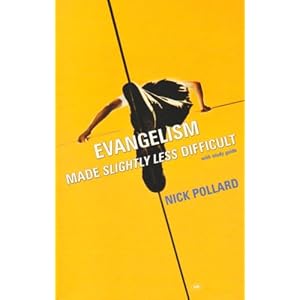 |
| Figure 1 |
I have been mining some of my of pre-iPad note books for gold.
And a warning. Incomplete thinking in progress. This is what blogs are for.
Recipients of my training technique will know that there are very few problems that cannot be better understood by reducing them to four boxes.
I am grateful to the unidentified (in my notes), and no longer recalled, conductor of the Bath and Wells pre-Advent retreat in 2012. I took jottings as the addresses began and then I disappeared, as I often do, into a world of my own. Quotes from the saints became imaginings from the St.
So let's imagine that we divide the church's year into two parts. Those that focus on memory and those that focus on hope. By 'memory' I mean those festivals that look back on some key biblical Christian event. By 'hope' I mean those festivals that look forward to something happening in the future.
I am aware that many festivals, with good preaching, can do both of these things but stick with me.
Now let us make a further division. We divide those festivals that look upon that thing with thanksgiving and gratitude (something has been or will be done) compared with those that require us to be penitent (we are sorry it happened, or will happen).
This gives us Figure 1's four box grid.
 |
| Figure 2 |
Now let us look at the church's year and see which festivals fill the boxes. Top left (Figure 2) we have Lent. We look back on our lives, on Jesus' temptation in the wilderness and, starting in the dust of Ash Wednesday, we proceed slowly and gently, head down, with humility and restraint.
Lent is a time for reflection, for looking back and for adjustment of behaviour in the light of the journey to the cross.
There is little thanksgiving and only the hope of death in the air.
Advent (Figure 3) is a shorter time for reflection. It is largely replaced, in the eyes of the world, by Christmas, a season which runs from the day the John Lewis Christmas advert first airs until the first whiff of a sale is in the air.
 |
| Figure 3 |
Christians reflect while the world rushes past. Upon what do we reflect? Firstly the incarnation - the truth that this story of a baby somehow universalises God with us. Secondly a look longer ahead to a time when we will be revisited and encompassing the desire not to be unprepared for that. It is hope but it is penitent hope.
We try and put the brakes on the world giving thanks until Christmas Day. We fail, but we keep trying. No-one wants a confessional at the office Christmas party, even if it is being held in Advent 1.
The parables of the kingdom fit here. Wise and foolish virgins. Tenants in the vineyard. Wedding banquets where folk don't turn up.
 |
| Figure 4 |
So when do Christians do happy? Ideally, and primarily, on Easter Day (Figure 4). The memory of what happened to Jesus on the third day is a thing of great joy. We look back on what the hymn writers see as the greatest day in history. We have a corporate memory to be thankful for. Thine be the glory, risen conquering son (we find it hard to shake off our military metaphors though).
Of course all these festivals are, really, is us telling our great stories again. Stories told in and of faith. About faith. For faith. The stories are all set in history - they grew out of a particular time and in a particular place, but their historicity is not completely available to us. It is what the stories are for that is important, which is why we ought to be able to point to a festival which adds hope to thanksgiving (Figure 5).
But no one Christian event gives us access to this combination, easily.
 |
| Figure 5 |
I wonder if this was the place where the great evangelistic rallies used to fit. They are largely replaced by the Alpha Course these days. Summer camp talks on how to find 'The Way' were an annual marker in my Christian walk for many years. They were certainly occasions of thanksgiving for a new future and hope inserted where previously there had been none.
But I tentatively ask this question. Is there a festival we should make more of because it fits best in the bottom right box? All Saints?
If not then we need to remember that each one of our three markers, Lent, Easter and Advent, needs unpacking by preaching, that it may point to the future and do it with hope.
What does what has happened have to say to us about what will happen?
Comments gratefully received in any of the usual places.






